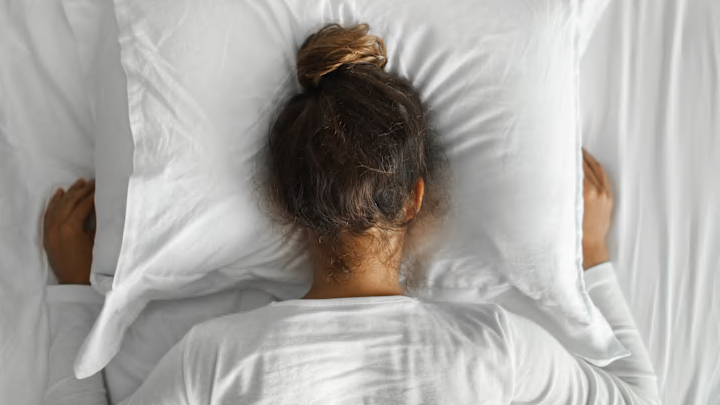You’ve likely experienced a hypnic jerk at least once in your life. It’s a brief, involuntary muscle spasm that wakes you during sleep or while you’re on the cusp of it. Sometimes the sensation manifests in your dreams to make you feel like you’ve suddenly stumbled or fell. If you can’t relate to this annoying sensation, consider yourself lucky. According to Medical News Today, hypnic jerks (also known as “sleep starts”) occur in 60 to 70 percent of people. Anyone can experience them, regardless of age or gender. The sleep phenomenon has been shrouded in mystery for years, and scientists are still trying to uncover the underlying causes.
The American Academy of Sleep Medicine (AASM) lists a variety of plausible reasons for hypnic jerks. They include high caffeine consumption, intense workouts, sleep deprivation, and stress. Therefore, reducing these exposures may make sleep starts less frequent, though this is no guarantee.
More research is needed to determine the causes. One study published in the journal Sleep Medicine in 2016 suggests that they originate in the subcortical region of the brain which governs emotional, cognitive, and social functions. A 2018 study published in Current Sleep Medicine Reports observed excessive hypnic jerks in people with neurological disorders, such as Parkinson’s, migraines, and brain lesions.
But while hypnic jerks may be correlated with some neurological conditions, that does not mean they cause the disorders. The twitches are a normal occurrence and not a cause for concern in most cases. Allen Richert, division director of sleep medicine at the University of Mississippi Medical Center’s Department of Psychiatry and Human Behavior, tells Popular Science, “We don’t think of it as a pathological problem [...] It’s definitely not the sign of a sleep disorder that we would treat, and not a sign of any underlying problems such as seizures or movement disorders.”
However, the AASM recommends you see a doctor if the jerks—or the fear of them—are causing you to lose sleep.
Read More About Sleep:
